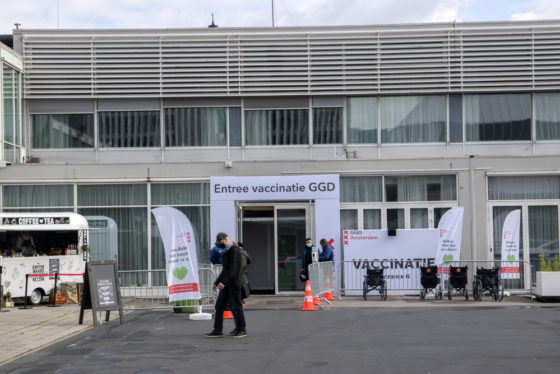Government hopes sector-specific coronavirus rules can prevent lockdowns


Business sectors will be required to come up with plans to contain the spread of coronavirus to keep society as open as possible during a new wave of infections, health minister Ernst Kuipers said on Monday.
The government says sector-specific ‘rules ladders’ can play a key role in slowing the spread of the disease without the government having to impose restrictions such as closing schools, bars and restaurants.
Kuipers acknowledged in a letter to parliament that there was a ‘very real’ risk of millions of people becoming infected during the autumn, but the government aimed to keep closures to a minimum.
Organisations in sectors such as education, retail and the travel industry should agree when to introduce measures such as social distancing, one-way systems and screens to reduce infection.
Nationwide measures such as closing shops risked having an ‘adverse effect’ and encouraging ‘undermining the rules’, Kuipers said. He gave the example of hairdressers making home appointments when salons were closed or people going to illegal parties during lockdown.
‘By taking preventive measures, we can hopefully hold back the virus sufficiently and in time,’ Kuipers wrote.
Testing and vaccines
However, the government could reintroduce measures such as vaccine passports ‘in exceptional circumstances’. Most of the emergency powers the government was given to tackle the pandemic are no longer available because MPs voted to abolish the emergency law at the start of June.
The network of local health services (GGD) should be on standby to increase testing and vaccination capacity rapidly ‘where necessary’, if infections start to rise or a new variant is detected.
In this case, he said, the number of vaccinations should rise from the current level of less than 1,000 a week to 300,000 weekly injections, increasing to 1.5 million a week within six weeks. He gave no start date for the second booster jab.
Testing, currently limited to elderly and vulnerable people, should be increased to a maximum of 100,000 tests per day within five weeks of universal testing being reintroduced. Currently around 2,000 tests a day are being carried out.
Kuipers said the government could abandon the sector-based strategy if the ‘black scenario’ of a large-scale outbreak occurred. ‘The emergence of new virus variants has taught us that we must prepare for an unprecedented spread of the epidemic,’ he wrote.
Thank you for donating to DutchNews.nl.
We could not provide the Dutch News service, and keep it free of charge, without the generous support of our readers. Your donations allow us to report on issues you tell us matter, and provide you with a summary of the most important Dutch news each day.
Make a donation